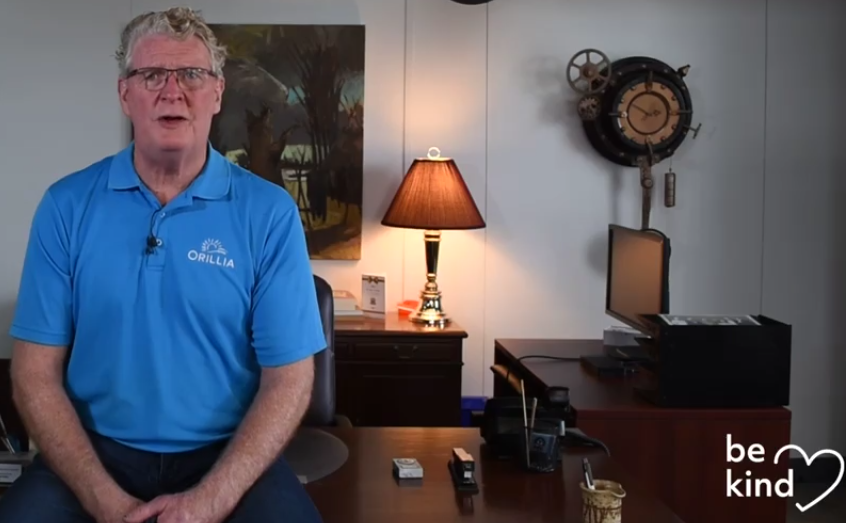Six area mayors have written a letter to the province calling for increased education on Indigenous matters in Ontario’s primary and secondary schools.
The letter, addressed to Premier Doug Ford and Minister of Education Stephen Lecce, calls for increased education on Indigenous history, as well as “the good, the bad, and the ugly” of settler/Indigenous relations.
Signed by the mayors of Orillia, Severn, Tiny Township, Oro-Medonte, Ramara, and Midland, the letter notes how each of the mayors — with their varying backgrounds — received little formal education on Indigenous matters, and argues that education is one of the key aspects of reconciliation moving forward.
“Most of us found ourselves embarrassed by the lack of knowledge we possessed when we first came to office around Indigenous issues,” the letter states.
“It is our collective belief that with relevant knowledge through various components of education there is greater understanding, and this understanding leads to a natural path of true reconciliation," the letter states. “We believe there is no greater or more productive way of achieving such an accurate education than through our primary and secondary school education systems.”
With reference to residential schools and a lack of potable water on many Indigenous reserves, Severn Mayor Mike Burkett argued that a higher degree of public education in the past might have prevented a lot of the issues Indigenous peoples are faced with today.
“They're part of our culture — they were actually here before us, so I think if I was taught that at an early age, maybe this wouldn't have happened to them,” he told OrilliaMatters. “Today, knowing what happened to the Indigenous people, it would have better educated me to help support them.”
Burkett said he views education for Canada’s youth as an indispensable tool in pursuing reconciliation.
“Just imagine (the impact of) kids at an early age learning about their heritage and their background and how this country grew,” he said.
In a statement to OrilliaMatters, Simcoe North MPP Jill Dunlop said that the province is committed to education on Indigenous matters, and that it has introduced various curriculum improvements to Ontario’s primary and secondary curriculum since 2018.
“The government is firmly committed to educating Ontario students about Indigenous history and supporting Indigenous student achievement and well-being,” she said. “The Ministry of Education continues to be in regular communication with our Indigenous partners on how to grow and increase Indigenous education and perspectives in our schools and curriculum more broadly.”
Dunlop pointed out that, in response to the Truth and Reconciliation Commission’s calls to action in 2018, the province introduced mandatory education in social studies for grades 4-6, and history in grades 7, 8 and 10, including material on the history of residential schools in grades 8 and 10.
In addition, the province added 10 courses on Indigenous matters to the grades 9-12 curriculum, Dunlop noted.
She said the province expects to roll out Indigenous education materials for grades 1 and 3 by September 2023, and noted the province has made recent financial investments in strengthening its relationships with Indigenous peoples.
“The Ministry of Education recently approved … an investment of $3.19 million over three years, to strengthen existing partnerships with the Chiefs of Ontario and First Nation Provincial Territorial Organizations,” she said. “The Métis Nation of Ontario is receiving $850,000 in 2021-22 towards collaborating with school board administrators and educators in learning Métis knowledge and integrating this knowledge into Indigenous education programs and initiatives.”
Despite the initiatives and investments rolled out by the province, Orillia Mayor Steve Clarke argued that education on Indigenous matters needs to be an ongoing and evolving process.
“I hope that the province sees (the letter) as a confirmation or support of the work that they have initiated in improving education on Indigenous issues, (and as) a call for greater work to be done until we have a comprehensive and meaningful curriculum across the board,” he said.
“The government has started some of those initiatives and I commend them for that, but it needs to be very comprehensive, and it needs to be rolled out across the different curriculums.”
Clarke pointed to the legacy of Canada’s residential school system as an area that will require extensive work.
“We need a comprehensive knowledge of the residential school system. I mean, that was very systematic, in place for an extremely long time, and it will take generations for the harm that was done by that program to be undone," Clarke said.
“I just think education has the ability to naturally move reconciliation forward when ... we have a greater understanding of each other's perspective."
The call to the province arises from monthly meetings held by the six mayors, as well as Rama First Nation Chief Ted Williams, where regional issues are discussed on an informal basis.
Discussions about the letter began in late 2021, and it was submitted to the province on March 16.
